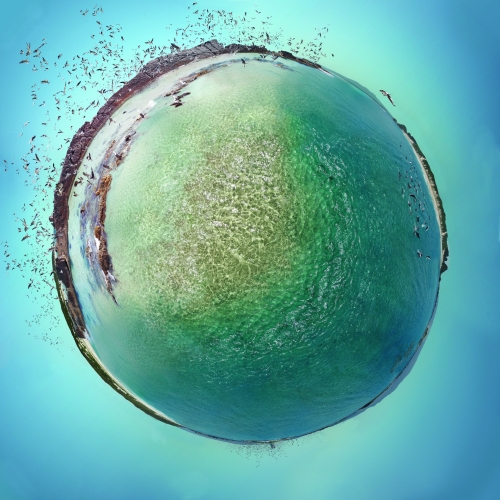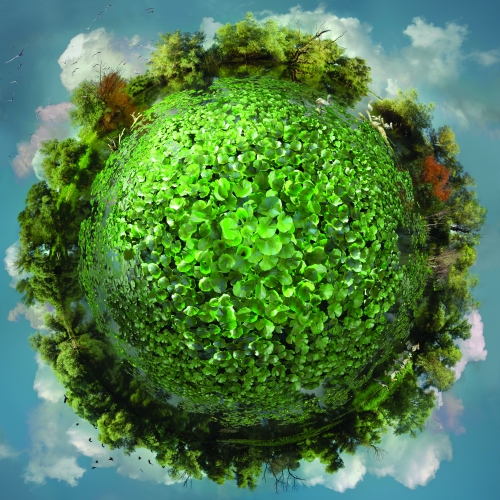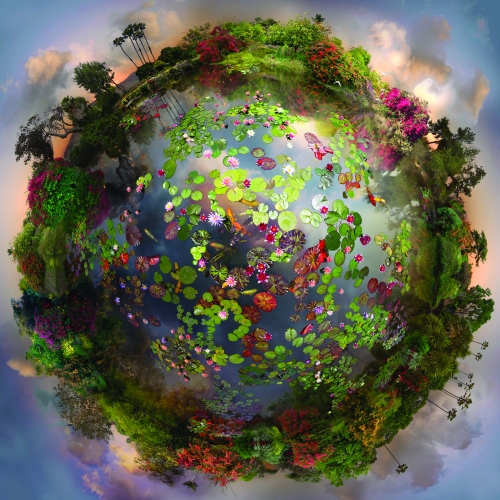It is time for us to evolve. We know well enough that species adapting to a changing environment survive, while those that do not go extinct. We also know our environment is changing and that our own activities are contributing to those changes. We therefore know enough to understand: we must either evolve or perish.
For the first time in history, our challenge is not the implacable forces of external nature, but the inner toxins of our own nature. The radical changes in the ecosystem threatening our survival are not being thrust upon us from the outside but stem from the greed, hatred, and delusion lodged deep in our own hearts. We are our own greatest threat and are thus in the unique position of having to adapt both to ourselves and from ourselves.
The radical changes in the ecosystem threatening our survival are not being thrust upon us from the outside but stem from the greed, hatred, and delusion lodged deep in our own hearts.
The operating system we are using to function in this world is a relic from a previous age and is rapidly becoming obsolete. Our most basic instincts are for individual survival at any cost. Greed ensures that I will take what I need, at the expense of all others, while hatred provides the impetus to destroy anyone who threatens me or stands in my way. Both forms of desire create and support a sense of self, the one who must survive and reproduce no matter at what cost.
The problem we now face is that these very instincts, which have served us well in a primitive, competitive setting, have become counterproductive in the interdependent social world we now inhabit and have themselves become our greatest existential threat. The greed and hatred that have kept us alive are now killing us. The adaptation required for human survival is thus an inner one—we must learn to reduce and even eliminate both the selfish greed driving the overconsumption of resources and the selfish hatred that so disdains and despoils the living systems in which we are embedded.

Our vaunted human intelligence is little help in this matter, for it more often serves to further the ruination than to stop it. Even when intellect does allow us to understand the harm we are causing, which can now be mapped out in some detail, it offers no useful solutions for how to stop. Delusion maintains a choking grip on our emotional intelligence. As primitive beings still, we simply do not have the self-knowledge to get ourselves out of the danger we are causing ourselves. Intellect tells us well enough what we are doing wrong, but it will take a much deeper transformation to help us learn how to stop doing it.
This is where the dharma comes in. It is a science of inner understanding and of inner adaptation. It teaches us that human suffering is self-created, and that we can thus heal ourselves from our suffering by self-understanding, self-regulation, and self-transformation. In particular, the dharma points to desire (both greed and hatred) as the cause of suffering and instructs us that any moment in which we are able to let go of desire will be a moment of well-being. Scaling this knowledge up from the personal to the collective realm, we gain a blueprint for survival: to whatever extent we are able as a species to diminish the impact of greed, hatred, and delusion upon our behaviors, we will thereby gain leverage over the forces threatening us.
The means for developing this ability to evolve beyond our current conditioning is wisdom, which is the antidote for the delusion sustaining greed and hatred. Wisdom is an inward-facing knowledge and must therefore be cultivated by the inner arts of meditation and experiential investigation. These have been woefully neglected in Western civilization, which is more adept at effecting material alterations upon the outer world, but have been well studied and preserved by Eastern contemplative traditions. The time has come to learn the lessons offered by the inner sciences and to use that knowledge to transform who we are and how we construct our world.
The Buddha appears to have demonstrated the next step in human evolution, wherein greed, hatred, and delusion can be entirely bypassed and expunged from the human psyche. He showed that these instincts, though deep, are not essential. As mammals we have also inherited a set of cooperative impulses that allow the expansion of one’s perspective from “me” to “us,” from the merely personal to the family, pack, herd, or tribe. These impulses encourage caring for others and render noble the impulse to regard one’s own well-being as intertwined with the well-being of others.

At present both competitive and cooperative drives coinhabit our hearts, and scarcely a moment goes by when we are not called upon to feed one and starve the other. Choices are made, several times a second, that shape our actions. These will be either selfish actions that cause suffering to ourselves and others or selfless actions that help us get free of suffering. The thing is, we can make only one choice at a time, so whenever we enact one, we neglect the other. Changing ourselves involves learning how to develop those states, behaviors, and dispositions that are healthy, while allowing the unhealthy ones to atrophy from neglect.
Our greatest ally in choosing the healthier path is the left prefrontal cortex, which is the region of the brain lighting up when one is mindful. Bringing heightened conscious awareness to bear dispels the darker forces of the more primitive mind and provides access to all the innate healthier dispositions rooted in non-greed, non-hatred, and non-delusion.
Generosity, kindness, and wisdom can save us from ourselves. Our ancestors in India discovered this long ago and followed a noble path to the extinction of suffering. As this knowledge begins to permeate our current worldview and show us a different course than the one we are on, we too can use the insights of introspection to tread a path away from extinction. It is time for us to evolve.
Thank you for subscribing to Tricycle! As a nonprofit, we depend on readers like you to keep Buddhist teachings and practices widely available.
